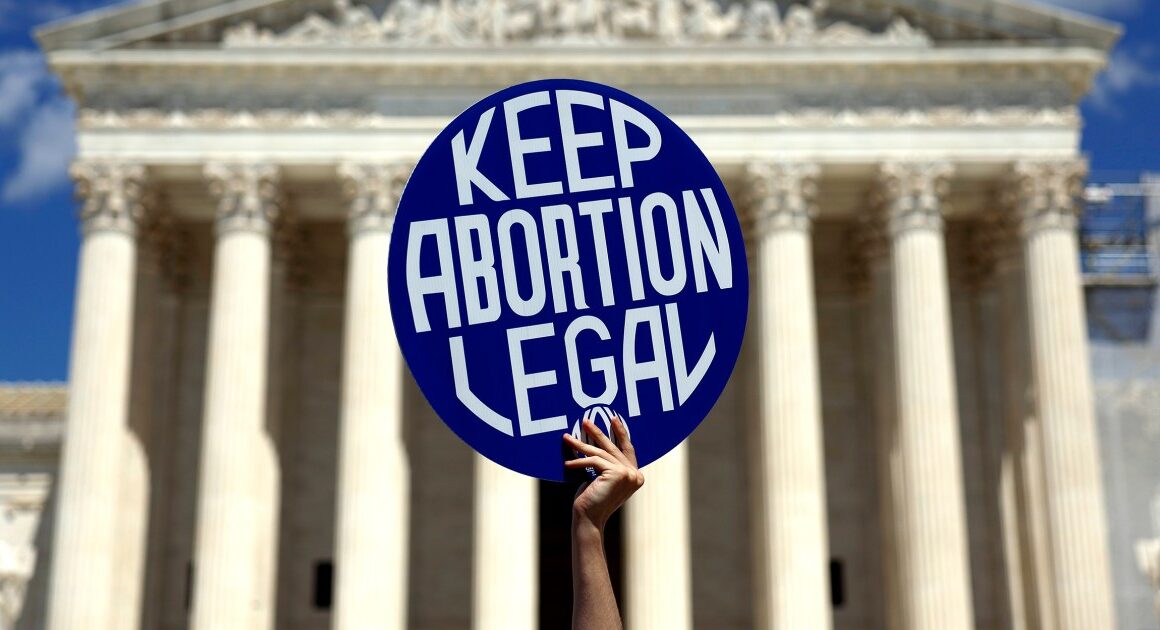The group most directly affected by restrictions on abortion — women of reproductive age — are broadly against them, new survey results have found.
According to findings released Wednesday by KFF, a nonprofit health think tank, 74% of women in the U.S. ages 18 to 49 think abortion should be legal. Around 70% support a federal right to abortion — the position held by Vice President Kamala Harris in a presidential election in which abortion rights are expected to be a motivating factor for many voters.
Nearly half of Republican women of reproductive age said abortion should be legal in most or all cases.
Former President Donald Trump has said states should decide whether abortion is legal, but 74% of the women surveyed disagreed. The figure, however, includes women who instead want a nationwide ban, according to Brittni Frederiksen, an associate director for women’s health policy at KFF who worked on the survey. Around half of the Republican women surveyed who opposed leaving abortion policies up to states took that position, she said.
The findings come from the 2024 KFF Women’s Health Survey, which asked more than 6,200 women ages 18 to 64 across the country about issues such as abortion, contraception and mental health from mid-May to mid-June. The report released Wednesday focuses more narrowly on how women of reproductive age view abortion, based on 3,900 responses.
The results are particularly relevant given the issue’s prominence in the election. Abortion-related measures are on the ballot in eight states, with Arizona and Missouri officially joining the list Tuesday. Similar measures in three other states have the required signatures but are waiting on certification.
A KFF poll conducted in February found that 1 in 8 voters saw abortion as the most important issue in the election and that roughly half considered it very important. A Gallup Poll conducted in May suggested that nearly a third of voters would vote only for a major-ticket candidate who shared their views on abortion.
Trump has recently downplayed the subject, however. He said at a news conference last week that it would be a “very small issue” in the election.
Harris, meanwhile, has emphasized it.
“We trust women to make decisions about their own body and not have their government tell them what to do. And when Congress passes a law to restore reproductive freedoms, as president, I will sign it into law,” she said last month at her first presidential campaign rally.
The choice to have an abortion crosses partisan divides, according to the KFF survey. Roughly similar shares of reproductive-age women from each party reported having had abortions: 12% of Republicans, 14% of Democrats and 15% of independents.
Around 64% said they opposed a nationwide law that would ban abortions after 15 weeks’ gestation. Sen. Lindsey Graham, R-S.C., has proposed such a policy (which would not override more restrictive state laws), and Sen. JD Vance, R-Ohio, Trump’s running mate, signaled support for that bill in 2022. More recently, however, Vance said on CBS News’ “Face the Nation” that he shared Trump’s view that states should determine their own policies.
The broader KFF survey of adults under 65 found that 65% support a nationwide right to abortion, Frederiksen said. A survey the Pew Research Center conducted in April similarly found that 63% of U.S. adults think abortion should be legal in all or most cases.
KFF also released two additional reports Wednesday looking at views on abortion policies among women of reproductive age in Arizona and Florida. Both states have abortion-related measures on their November ballots.
Florida’s measure proposes to overturn the state’s six-week abortion ban, which took effect in May. It needs 60% of the vote to pass.
KFF’s survey results in Florida suggest that 72% of reproductive-age women there think abortion should be legal, including roughly half of Republican women. Still, Frederiksen said, “we don’t know who’s planning on voting and if they’ll show up to vote.”
In Arizona, a key swing state, KFF found that 70% of reproductive-age women think abortion should be legal. More than 6 in 10 said they were concerned that an abortion ban might affect the safety of future pregnancies for them or people close to them.
Abortion is legal in Arizona up to 15 weeks, but in April, the state Supreme Court ruled that an 1864 law banning all abortions except to save a woman’s life was enforceable. Gov. Katie Hobbs later signed a bill repealing the ban before it could take effect.
In the fall, Arizonans will vote on a proposed constitutional amendment that would guarantee abortion care until fetal viability — around the 24th week of pregnancy. A poll in May from CBS News and YouGov indicated that 65% of Arizonans would vote in favor.
Frederiksen said her research shows that many women are unaware of or misinformed about their states’ abortion landscapes. In Arizona, for example, just 58% of reproductive-age women had heard of medication abortion.
“A lot of people just are unaware of the abortion policy in their state, unaware whether medication abortion is legal or not and whether they could get medication abortion pills online,” she said. “So I think there’s a lot of confusion.”
,








